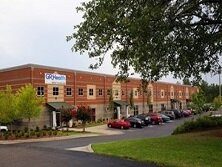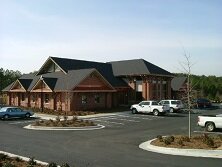Digestive Health
Advances in Weight Loss Surgery: Better Options for Complex Procedures
This past summer, the American Medical Association officially recognized obesity as a disease.
It’s an important statement, said Georgia Regents bariatric surgeon Dr. Brian Lane: “Obesity leads to diabetes, high blood pressure, heart disease and stroke, cancer and a shorter life expectancy. It’s important that we treat obesity as a disease and focus more attention on new treatments for patients with a long history of obesity.”
At Georgia Regents Medical Center, robotic surgery is another new advancement for patients struggling with weight loss. Early studies are indicating the procedure may improve patient safety and reduce pain during recovery, particularly in complex bariatric surgeries such as the duodenal switch bypass or during revision surgery (when additional procedures are needed). Most routine bariatric surgeries are still done with standard laparoscopic techniques, and Georgia Regents Medical Center bariatric surgeons have performed laparoscopic gastric bypass surgeries since 1999.
Robotic bariatric surgery uses the same minimally invasive approach as laparoscopic bariatric surgery, with the added benefits of enhanced imaging, tremor-free instrumentation and improved dexterity. Very few intestinal surgeries are as complex or require as much suturing as gastric bypass, which is where the robotic system excels.
In the near future, said Dr. Lane, advanced imaging options within the robotic system will also allow physicians to view blood vessels and check blood flow to tissues in real time, which helps to promote maximum healing of tissues.
Learn About Your Weight Loss Options
Meet our experienced bariatric surgeons during our weight loss seminars on the second and fourth Tuesdays of every month at 6:30 p.m. For more information or to register, visit gru.edu/weightloss, call us at 706-721-2609 or email [email protected].






